-
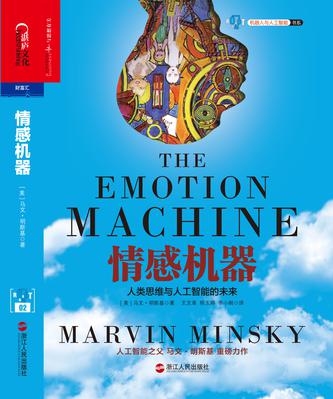
情感机器
1.大脑如何产生新想法?思维如何产生,又是如何运作的?意识缘何形成?什么是情感、感觉、想法?如果将人类大脑看成一台机器,那么这是否有益于我们设计出能够像人一样能理解、会思考的高级人工智能——情感机器? 2.情感是人类特有的一种思维方式,如果机器具备了情感,是不是就可以取代人类? 在《情感机器》中,人工智能之父马文•明斯基有力地论证了:情感、直觉和情绪并不是与众不同的东西,而只是一种人类特有的思维方式。也同时揭示了为什么人类思维有时需要理性推理,而有时又会转向情感的奥秘。通过对人类思维方式建模,他为我们剖析了人类思维的本质,为大众提供了一幅创建能理解、会思考、具备人类意识、常识性思考能力,乃至自我观念的情感机器的路线图。 -
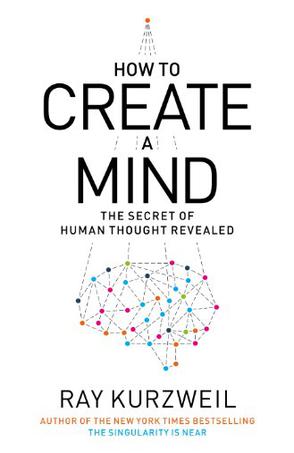
How to Create a Mind
-
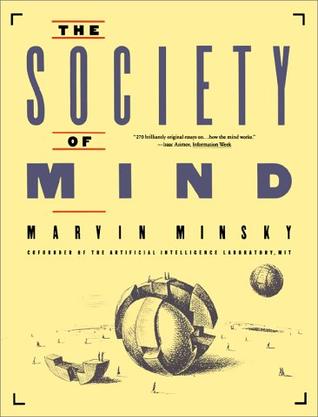
The Society of Mind
转载自amazon.com: Marvin Minsky -- one of the fathers of computer science and cofounder of the Artificial Intelligence Laboratory at MIT -- gives a revolutionary answer to the age-old question: _How does the mind work?_ (马文。明斯基————电脑科学的鼻祖,麻省理工学院的人工智能实验室的创始人之一————在本书里对相传以久的问题,“思维是怎么一回事儿?”,做出了革命性的回答。) Minsky brilliantly portrays the mind as a _society_ of tiny components that are themselves mindless. Mirroring his theory, Minsky boldly casts The Society of Mind as an intellectual puzzle whose pieces are assembled along the way. Each chapter -- on a self-contained page -- corresponds to a piece in the puzzle. As the pages turn, a unified theory of the mind emerges, like a mosaic. Ingenious, amusing, and easy to read, The Society of Mind is an adventure in imagination. (明斯基的精彩理论把思维描画成由本身不具备思维的微小部件组成的“社会”。本书章节段落之间结构跟他的理论相呼应,每一页纸独立成为一章,讨论整个问题里的单个环节。翻过这一篇篇书页,关于思维的统一理论渐渐成型,《意识社会》一书妙趣横生,是在想象空间里的一场历险。) -
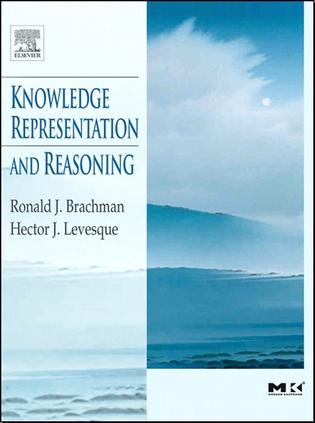
Knowledge Representation and Reasoning
Knowledge representation is at the very core of a radical idea for understanding intelligence. Instead of trying to understand or build brains from the bottom up, its goal is to understand and build intelligent behavior from the top down, putting the focus on what an agent needs to know in order to behave intelligently, how this knowledge can be represented symbolically, and how automated reasoning procedures can make this knowledge available as needed. This landmark text takes the central concepts of knowledge representation developed over the last 50 years and illustrates them in a lucid and compelling way. Each of the various styles of representation is presented in a simple and intuitive form, and the basics of reasoning with that representation are explained in detail. This approach gives readers a solid foundation for understanding the more advanced work found in the research literature. The presentation is clear enough to be accessible to a broad audience, including researchers and practitioners in database management, information retrieval, and object-oriented systems as well as artificial intelligence. This book provides the foundation in knowledge representation and reasoning that every AI practitioner needs. *Authors are well-recognized experts in the field who have applied the techniques to real-world problems * Presents the core ideas of KR&R in a simple straight forward approach, independent of the quirks of research systems *Offers the first true synthesis of the field in over a decade -
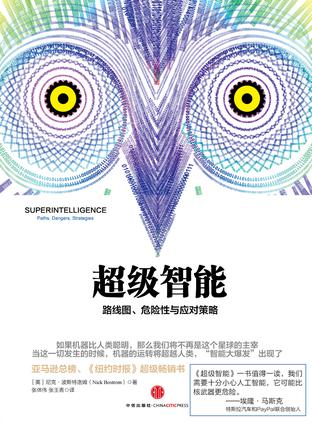
超级智能:路线图、危险性与应对策略
当机器智能超越了人类智能时会发生什么?人工智能会拯救人类还是毁灭人类? 作者提到,我们不是这个星球上速度最快的生物,但我们发明了汽车、火车和飞机。我们虽然不是最强壮的,但我们发明了推土机。我们的牙齿不是最锋利的,但我们可以发明比任何动物的牙齿更坚硬的刀具。我们之所以能控制地球,是因为我们的大脑比即使最聪明的动物的大脑都要复杂得多。如果机器比人类聪明,那么我们将不再是这个星球的主宰。当这一切发生的时候,机器的运转将超越人类。 人类大脑拥有一些其他动物大脑没有的功能。正是这些独特的功能使我们的种族得以拥有主导地位。如果机器大脑在一般智能方面超越了人类,那么这种新兴的超级智能可能会极其强大,并且有可能无法控制。正如现在大猩猩的命运更多的掌握在人类手中而不是自己手中一样,人类未来的命运也会取决于机器超级智能的行为。 但是,我们有一项优势:我们有机会率先采取行动。是否有可能建造一个种子人工智能,创造特定的初始条件,使得智能爆发的结果能够允许人类的生存?我们如何实现这种可控的引爆? 作者相信,超级智能对我们人类将是一个巨大的威胁。在这本书中,作者谈到了超级智能的优势所带来的风险,也谈到了人类如何解决这种风险。作者认为,他的这本书提到的问题将是我们人类所面临的最大风险。 这本书目标宏大,且有独创性,开辟了人工智能领域的新道路。本书会带你开启一段引人入胜的旅程,把你带到对人类状况和智慧生命未来思索的最前沿。尼克•波斯特洛姆的新书为理解人类和智慧生命的未来奠定了基础,不愧是对我们时代根本任务的一次重新定义。 -
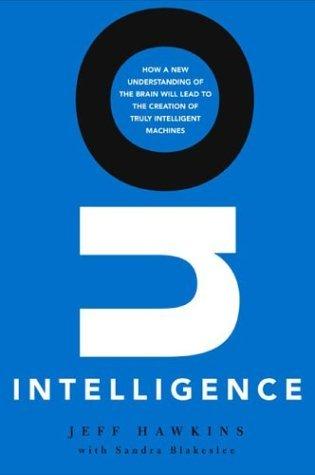
On Intelligence
From the inventor of the PalmPilot comes a new and compelling theory of intelligence, brain function, and the future of intelligent machines Jeff Hawkins, the man who created the PalmPilot, Treo smart phone, and other handheld devices, has reshaped our relationship to computers. Now he stands ready to revolutionize both neuroscience and computing in one stroke, with a new understanding of intelligence itself. Hawkins develops a powerful theory of how the human brain works, explaining why computers are not intelligent and how, based on this new theory, we can finally build intelligent machines. The brain is not a computer, but a memory system that stores experiences in a way that reflects the true structure of the world, remembering sequences of events and their nested relationships and making predictions based on those memories. It is this memory-prediction system that forms the basis of intelligence, perception, creativity, and even consciousness. In an engaging style that will captivate audiences from the merely curious to the professional scientist, Hawkins shows how a clear understanding of how the brain works will make it possible for us to build intelligent machines, in silicon, that will exceed our human ability in surprising ways. Written with acclaimed science writer Sandra Blakeslee, On Intelligence promises to completely transfigure the possibilities of the technology age. It is a landmark book in its scope and clarity.